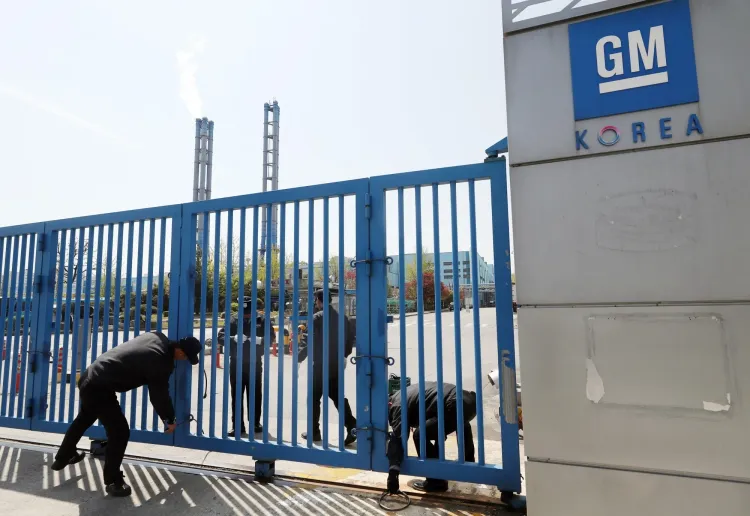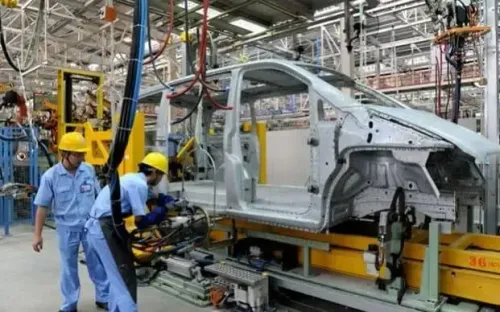GM Korea to Boost Vehicle Production Amid US Tariff Concerns

Synopsis
Key Takeaways
- GM Korea is set to increase production by 9 percent.
- An additional 21,000 vehicles will be produced at the Bupyeong plant.
- Concerns about a potential exit from South Korea are alleviated.
- About 85 percent of exports go to the U.S..
- Import prices dropped due to falling oil prices.
Seoul, April 16 (NationPress) GM Korea, the South Korean division of General Motors, has announced plans to enhance production at its Incheon facility by approximately 9 percent this year, according to the company’s labor union on Wednesday. This decision alleviates fears of a potential exit due to increasing uncertainty surrounding the United States' tariff policies.
The union reported that GM will add 21,000 vehicles to the production line at the Bupyeong plant in Incheon, located west of Seoul, for this year.
This increase represents nearly 9 percent of the plant's annual production capacity of 250,000 units, as per reports from the Yonhap news agency.
The announcement comes amid rising speculation regarding GM's possible departure from South Korea in response to a 25 percent tariff on imported vehicles imposed by Washington.
Approximately 85 percent of GM Korea's exports are directed to the United States.
The union indicated that the added production capacity reflects GM's commitment to maintaining its South Korean base as a vital export hub.
"The decision to increase production is expected to alleviate some of the concerns among our members," stated a union representative.
The union is set to convene with management to incorporate the revised production strategy into the work schedules for the upcoming month.
A separate meeting between labor and management is also planned for later this month to discuss responses to U.S. tariff policies and strategies for stable operations.
In related news, South Korea’s import prices declined for the second consecutive month in March, primarily due to a drop in global oil prices, as revealed by the central bank on Wednesday.
The import price index decreased by 0.4 percent from the previous month in March, following a 1.0 percent decline the month before, according to preliminary data from the Bank of Korea (BOK).
Import prices for raw materials fell by 3.3 percent month-on-month in March, while prices for intermediate goods rose by 0.7 percent.
This decline coincided with the average price of Dubai crude, South Korea's benchmark, which dropped by 7 percent from the previous month to an average of $72.49 per barrel in March, according to government data.









